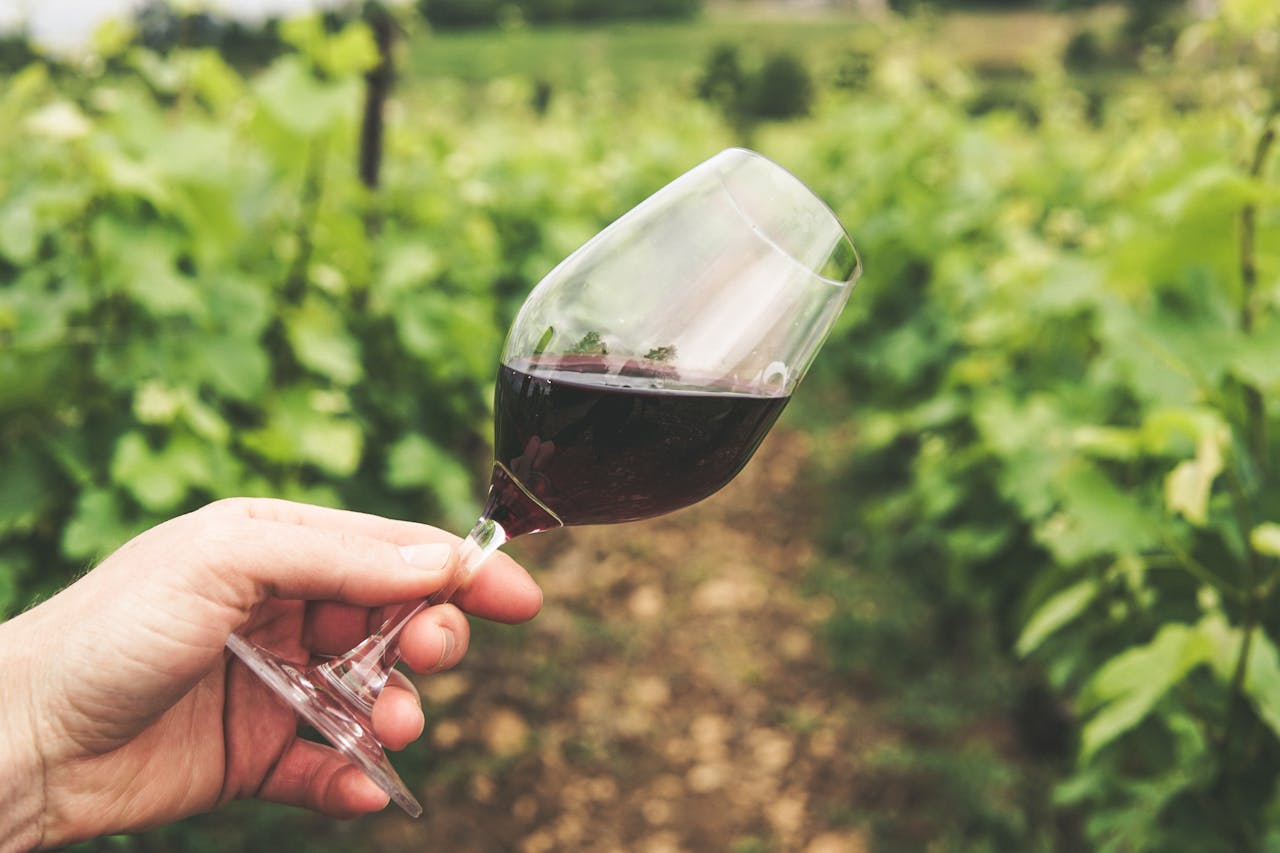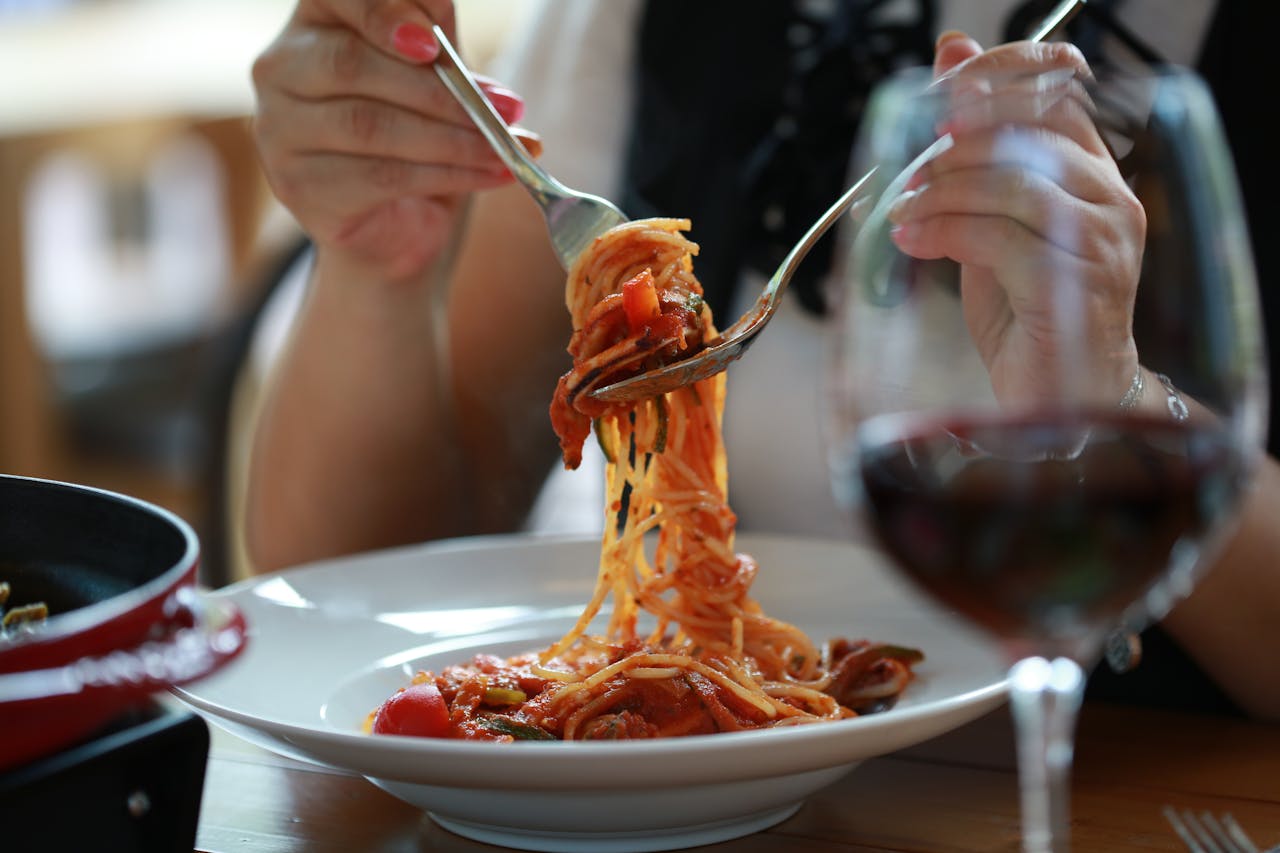Wine is a universally loved beverage, and it’s been that way for centuries. The ancient Egyptians drank it, as did the Romans and the Greeks. Ancient Sanskrit literature also confirms that people across India have long-enjoyed wine, and in Medieval Europe, records indicate that everyone from monks to members of the nobility frequently enjoyed a glass of the alcoholic drink. When Europeans landed in America in the 1500s, of course, they brought it with them.
Today, wine is consumed by more than 60 percent of Americans—at least occasionally. Earlier this year, one survey by YouGov found that, for most people, their wine of choice is a glass of red. In fact, more than 30 percent of wine drinkers claimed they loved red, while more than 40 percent said they liked it.
The research also showed that, when it comes to the health impact of drinking red wine, people are split on whether they believe it’s good or bad for them.
 Pexels
Pexels
Of the many people who enjoyed drinking wine regularly, the survey showed that 59 percent believed it to be healthy in moderation. Five percent, on the other hand, believed it was detrimental to their health. More than 25 percent of those who said they didn’t drink wine regularly also believed that moderate wine consumption was bad for health.
It’s not surprising that people are confused. On the one hand, the World Health Organization (WHO) maintains that no amount of alcohol is safe. It is firm in its position: “There is no form of alcohol consumption that is risk-free.” That, of course, includes red wine.
However, several studies also suggest the issue is a little more nuanced. Moderate red wine consumption has been linked with a reduced risk of cancer, heart disease, and even dementia.
So what’s the answer? Keep enjoying a glass of red or retire the bottle for good? Peter Brukner OAM, MBBS, FACSP, FACSM, FASMF, FFSEM, a nutritionist, dietitian, sports physician, and author has been asked this question multiple times during his 30-year career. Here’s what he has to say on the controversial topic.
Does red wine have any health benefits?
Let’s get one thing straight: alcohol is not widely considered to be healthy. In fact, it is a group one carcinogen, according to the WHO, and excessive consumption has been linked with an increased risk of a number of chronic diseases, including heart disease, dementia, and type 2 diabetes. It can also worsen mental health conditions, including depression and anxiety.
“Even low levels of alcohol consumption carry some risks and can cause harm,” notes the WHO. However, the organization also acknowledges that context is important.
“The level of risk depends on several factors, including the amount consumed, frequency of drinking, the health status of the individual, age, sex, and other personal characteristics, as well as the context in which alcohol consumption occurs,” it adds.
 Pexels
Pexels
In the Mediterranean, red wine is often consumed in small amounts with a meal. It’s one element of the Mediterranean diet, which is widely considered to be one of the healthiest ways to eat. Earlier this year, it made the top spot on The US News & World Report’s annual best diet list for the seventh year in a row.
According to Brukner, most of red wine’s benefits come from an antioxidant called resveratrol, which comes from the skin of grapes, which, of course, are used to make wine.
“Resveratrol has a connection with heart health because it helps in making better cholesterol levels, reducing inflammation, and lowering the chance of getting heart disease,” he tells VegNews. “This is why sometimes people mention ‘French Paradox.’ In France, people have lower rates of heart problems even if they eat many fatty foods. Some experts believe this happens because they drink wine during meals.”
Red wine also contains flavonoids, which are antioxidant and anti-inflammatory phytochemicals. Just recently, one study from Queen’s University Belfast, in which researchers analyzed data from more than 120,000 UK adults, concluded that the flavonoids in red wine might even help to reduce the risk of dementia. Flavonoids are also found in other non-alcoholic plant-based foods, including those that contain soy and cocoa.
 Pexels
Pexels
“There are so many evidence-based health benefits of eating lots of [flavonoid-rich foods],” Christine Byrne, MPH, RD recently explained to VegNews. “Studies show that consuming flavonoids is associated with a reduced risk of heart disease and cognitive decline. In your body, flavonoids help regulate your blood pressure, prevent plaque buildup in your brain, and reduce inflammation in your brain.”
What counts as moderate wine consumption?
If you want to reap the health benefits of red wine, moderation is key. “This means no more than one small glass each day for women and up to two glasses each day for men,” says Brukner. “A ‘small glass’ is about 150 milliliters—so it’s quite little. Drinking a little bit every day, especially with food, can be good for healthy living. But when you drink too much, that’s where trouble begins.”
He points out that binge drinking, which is drinking a lot of alcohol in a short amount of time, rarely comes with any benefits. This type of drinking is common in the West. In the US, one 2023 survey from the National Institute on Alcohol Abuse and Alcoholism found that more than 60 million adults reported binge drinking in the previous month.
“This is where things become difficult,” says Brukner. “Drinking alcohol frequently, even red wine, can cause damage to your liver if you consume too much. Drinking a lot of alcohol for a long time can cause liver troubles like fatty liver or even cirrhosis, which is very bad.” He adds that while a small amount might help with relaxation, too much can worsen mental health problems, and it could also increase the risk of cancer, too.
“Some research says drinking a little bit of red wine may help lower risk for some cancers, like colon cancer. This is because it has antioxidants,” he explains. “But there is also a bad side; alcohol connects to a higher chance of getting other cancers like breast cancer, liver cancer, and mouth cancer.”
“While there could be some advantages, it is crucial not to overdo it. If you have a family history of cancer, it’s good to consider if drinking alcohol is worth the risk.”
If you don’t want to drink alcohol, but you do want to reap the benefits of plant compounds like resveratrol, there are many other nutritious plant-based choices on offer. You can go directly to the source, for example, and snack on grapes. Blueberries, cranberries, and peanuts are also good sources of the antioxidant. You can also cook with red wine, which will reduce the alcohol, but keep the resveratrol content.
If you do decide to drink, the main thing to remember is to keep your glass small, says Brukner, and resist the temptation to keep topping it up.
“If you like to have a glass of wine with your meal, that’s fine, but remember to drink only a little bit,” he advises. “And if you do not drink, you can get good effects by eating foods with many antioxidants. Like all things in life, it is about finding balance and choosing what is best for your health.”

